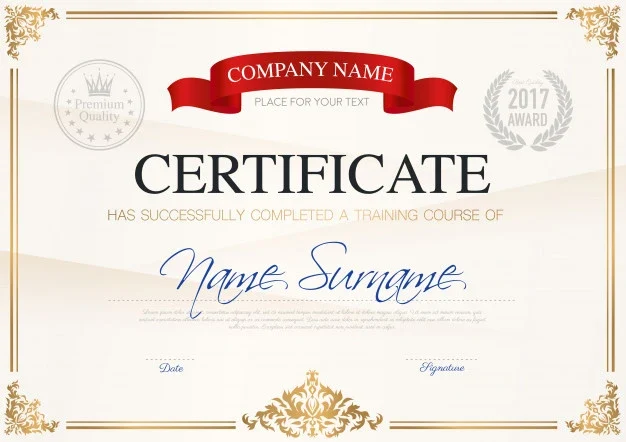Oracle Manufacturing refers to a set of software solutions and tools provided by Oracle Corporation to support various aspects of manufacturing operations within organizations. These solutions are designed to help businesses streamline their manufacturing processes, improve efficiency, reduce costs, and enhance overall productivity. It is used by organizations of all sizes, from small manufacturers to large enterprises, to optimize their manufacturing operations and deliver high-quality products efficiently.
- Join Our Live Online Classes

Google Reviews

JustDial Reviews
Why Radical Technologies
Live Online Training
Live Classroom Training
Self Paced Training
Live Online Training
Live Classroom Training
Self Test Training
Why enroll Redhat Linux
Why enroll for LINUX RHEL 8 course ?
Course Benefits
Duration of Training : 60 hrs
Batch type : weekdays /weekends/ Customized Batches
Mode of Training: Offline / Online / Corporate Training
Projects Given : 2 Projects minimum
Trainer Profile : Experienced Faculty from IT Industry
Projects | Assignment | Scenarios and Used Case Studies
Designations
- ALL COMBO COURSES
- PROGRAMMING COURSES
- NON PROGRAMMING COURSES


Want to become Engineer?


Want to become Engineer?


Want to become Engineer?
WhyTerraform ?
Multi-Cloud Support
Declarative Configuration
Resource Graph
Modularity and Reusability
State Management
Plan and Apply Workflow
Extensibility
About your Terraform Certification Course
Terraform Skills Covered
-
State Management
-
Terraform Modules
-
Dependency Management
-
Terraform CLI
-
Terraform Configuration Language (HCL)
-
Infrastructure as Code (IaC) Principles
-
Resource Provisioning
-
Terraform Providers
-
Terraform Workspaces
-
Terraform Best Practices
Curriculum Designed by Experts
Oracle Manufacturing Course Syllabus
- Navigating in R12 Oracle Applications
- Log in to Oracle Applications
- Navigate from Personal Home Page to Applications
- Choose a responsibility
- Create Favorites and set Preferences
- Use Forms and Menus
- Enter data using Forms
- Search for data using Forms
- Access online Help
- Run and monitor Reports and Programs
- Log out of Oracle Applications
Introduction to Oracle Applications R12
- Explain the footprint of R12 E-Business Suite
- Describe the benefits of R12 E-Business Suite
- Describe R12 E-Business Suite architecture
- Shared Entities and Integration
- Explain shared entities within R12 E-Business Suite
- Describe key integration points and business flows between products in E-Business Suite (EBS)
- Identify Key Business Flows and products involved in E-Business Suite (EBS)
Fundamentals of Flexfields
- Describe Flexfields and their components
- Identify the steps to implement a Flexfield
- Define value sets and values
- Define Key Flexfields
- Define Descriptive Flexfields
Fundamentals of Multi-Org
- Define Multiple Organization (Multi-Org)
- Describe the types of organizations supported in the Multi-Org model
- Explain the entities of Multi-Org
- Explain how Multi-Org secures data
- Identify key implementation considerations for Multi-Org
- Define Multi-Org Access Control
- Explain Multi-Org preferences
- Explain Enhanced Multiple-Organization Reporting
- Explain the concepts of subledger accounting
Fundamentals of Workflow and Alerts
- Explain Workflow concepts
- Describe the benefits of Workflow
Overview of Oracle Inventory
- Receiving Inventory
- Transferring Inventory
- On-hand and Availability
- Issuing Inventory
- Inventory Accuracy
- Discussing Inventory Application Integration
Defining Inventory Organizations
- Overview of Inventory Structure
- Setting up the Inventory Organization Structure
- Defining Organization Parameters
- Defining Subinventories and Locators
Units of Measure
- Defining Units of Measure
Defining and Maintaining Items
- Defining Items Process
- Using Item Templates
- Assigning Items to Organizations
- Categories, Category Sets, and Catalogs
- Deleting Items
Lot and Serial Control
- Setting up Lot Control
- Maintaining Serial Information
- Maintaining Lot and Serial Genealogy
Transaction Setup
- Defining Transaction Types
- Defining Picking Rules
- Defining Account Aliases
- Opening and Closing Accounting Periods
- Setting up Move Orders
- Material Shortage Alerts and Notifications
Issuing and Transferring Material
- Managing Receipts
- Performing Transactions
- Performing Move Orders
- Performing Mobile Transactions
- Managing Shipments
On-hand and Availability
- Using the Material Workbench
- Creating Available to Promise Rules
- Managing Reservations
Material Status Control
- Material Status Setup
Inventory Replenishment
- Defining Replenishment
- Inventory Forecasting Methods
- Replenishment Counting
- Kanban
Inventory Accuracy Fundamentals
- Defining Counting
- ABC Analysis
- Cycle Counting
- Physical Inventory
Table Information
- Accessing the Electronic Technical Reference Manual (eTRM)
Defining Items
- Creating Manufacturing and Engineering Items
- Using Item Templates
- Entering and Revising Item Attributes
- Enabling Organization Assignments
- Searching Items
- Viewing Item Information
- Creating Item Catalog Groups
- Defining Descriptive Elements
Setting Up Bills of Material and Routings
- Setting Up Workday Calendars
- Using the Workday Calendar
- Setting Up BOM and Routing Information
- Defining Competencies for Resources
- Defining Competencies for Routings
- Defining Competencies for Standard Operations
- Creating Alternates
- Defining Lookups
Creating Bills of Material
- Overview of Bills of Material
- Creating Standard Bills of Material
- Entering Bills of Material
- Assigning Descriptive Elements
- Creating Reference Designators
- Assigning Substitute Components
- Creating Alternate Bills of Material
Creating Customized Bills of Material
- Creating Planning, Model and Option Class Bills of Material
- Using Configure to Order Features
- Autocreating Configuration Items
- Deactivating Configuration Items
- Creating Product Families
- Assigning Members
Maintaining Bills of Material
- Revising Bills of Material and Items
- Using Tools Menu
- Reviewing Indented Bills of Material
- Comparing Bills of Material
- Using Common Bills of Material
- Performing Mass Changes
- Bills of Material E-Records
- Bills of Material Business Events
Create Routings
- Creating Routings
- Defining Operating Competencies for Performing Routing Operations
- Calculating Lead Times
- Computing Manufacturing Lead Time
- Calculating Cumulative Total Lead Time
Maintaining Routings
- Revising Routings
- Creating Standard Operations
- Defining Operation Competencies for Standard Operations
- Viewing Resource Usage
Common Bills of Material and Routing Functionality
- Copying Bills and Routings
- Referencing Common Bills and Routings
- Defining Documents
- Defining Bill and Operation Documents
- Deleting Information
- Importing Bills and Routings
Engineering Overview
- Introducing Oracle Engineering
Setting Up Oracle Engineering
- Setting Up Engineering Flowchart
Creating Engineering Change Orders
- Engineering Change Orders Overview
- Creating ECOs
- ECO Life Cycle
Maintaining Engineering Change Orders
- Implementing ECOs
- Viewing ECO Information
- Running ECO Reports
- Managing ECOs
- Understanding Engineering Change Order Business Object Interface
Transferring and Copying Engineering Items, Bills, and Routings
- Transferring and Copying Product Information
- Transferring Information to Manufacturing
- Copying Information to Manufacturing
Free Career Counselling
+91 8882400500
Global Certification
- Exam & Certification

Terraform Course Projects in Seattle
Multi-Cloud
Deployment
Highly Available Web Application
Infrastructure Governance and Compliance
Container Orchestration with Kubernetes
Infrastructure Monitoring and Logging
Disaster Recovery (DR) Setup
Microservices Architecture
Serverless Architecture
Hybrid Cloud Deployment
Continuous Integration and Delivery (CI/CD) Pipelines
Get Experience Of 4+ Years
- Projects
- Real Time Protection
- Assignments

-
Solution for BigData Problem
-
Open Source Technology
-
Based on open source platforms
-
Contains several tool for entire ETL data processing Framework
-
It can process Distributed data and no need to store entire data in centralized storage as it is required for SQL based tools.

-
Solution for BigData Problem
-
Open Source Technology
-
Based on open source platforms
-
Contains several tool for entire ETL data processing Framework
-
It can process Distributed data and no need to store entire data in centralized storage as it is required for SQL based tools.

-
Solution for BigData Problem
-
Open Source Technology
-
Based on open source platforms
-
Contains several tool for entire ETL data processing Framework
-
It can process Distributed data and no need to store entire data in centralized storage as it is required for SQL based tools.
Oracle Manufacturing Certification Course reviews
I had undergone oracle DBA course under Chetan sir's Guidance an it was a very good learning experience overall since they not only provide us with theoretical knowledge but also conduct lot of practical sessions which are really fruitful and also the way of teaching is very fine clear and crisp which is easier to understand, overall I had a great time for around 2 months, they really train you well.also make it a point to clear all your doubts and provide you with clear and in-depth concepts hence hope to join sometime again
I have completed Oracle DBA 11g from Radical technology pune. Excellent trainer (chetna gupta). The trainer kept the energy level up and kept us interested throughout. Very practical, hands on experience. Gave us real-time examples, excellent tips and hints. It was a great experience with Radical technologies.
Linux learning with Anand sir is truly different experience... I don't have any idea about Linux and system but Anand sir taught with scratch...He has a great knowledge and the best trainer...he can solve all your queries related to Linux in very simple way and giving nice examples... 100 to Anand Sir.
I had a wonderful experience in Radical technologies where i did training in Hadoop development under the guidance of Shanit Sir. He started from the very basic and covered and shared everything he knew in this field. He was brilliant and had a lot of experience in this field. We did hands on for every topic we covered, and that's the most important thing because honestly theoretical knowledge cannot land you a job.
I have recently completed Linux course under Anand Sir and can assuredly say that it is definitely the best Linux course in Pune. Since most of the Linux courses from other sources are strictly focused on clearing the certification, they will not provide an insight into real-world server administration, but that is not the case with Anand Sir's course. Anand Sir being an experienced IT infrastructure professional has an excellent understanding of how a data center works and all these information is seamlessly integrated into his classes.
Redhat Linux System Administration - Roles and Responsibilities
1. Basic user account management (creating, modifying, and deleting users).
2. Password resets and account unlocks.
3. Basic file system navigation and management (creating, deleting, and modifying files and directories).
4. Basic troubleshooting of network connectivity issues.
5. Basic software installation and package management (installing and updating software packages).
6. Viewing system logs and checking for errors or warnings.
7. Running basic system health checks (CPU, memory, disk space).
8. Restarting services or daemons.
9. Monitoring system performance using basic tools (top, df, free).
10. Running basic commands to gather system information (uname, hostname, ifconfig).
1. Intermediate user account management (setting permissions, managing groups).
2. Configuring network interfaces and troubleshooting network connectivity issues.
3. Managing file system permissions and access control lists (ACLs).
4. Performing backups and restores of files and directories.
5. Installing and configuring system monitoring tools (Nagios, Zabbix).
6. Analyzing system logs for troubleshooting purposes.
7. Configuring and managing software repositories.
8. Configuring and managing system services (systemd, init.d).
9. Performing system updates and patch management.
10. Monitoring and managing system resources (CPU, memory, disk I/O).
1. Advanced user account management (LDAP integration, single sign-on).
2. Configuring and managing network services (DNS, DHCP, LDAP).
3. Configuring and managing storage solutions (RAID, LVM, NFS).
4. Implementing and managing security policies (firewall rules, SELinux).
5. Implementing and managing system backups and disaster recovery plans.
6. Configuring and managing virtualization platforms (KVM, VMware).
7. Performance tuning and optimization of system resources.
8. Implementing and managing high availability solutions (clustering, load balancing).
9. Automating system administration tasks using scripting (Bash, Python).
10. Managing system configurations using configuration management tools (Ansible, Puppet).
1. Learning basic shell scripting for automation tasks. 2. Understanding file system permissions and ownership. 3. Learning basic networking concepts (IP addressing, routing). 4. Learning how to use package management tools effectively. 5. Familiarizing with common Linux commands and utilities. 6. Understanding basic system architecture and components. 7. Learning basic troubleshooting techniques and methodologies. 8. Familiarizing with basic security principles and best practices. 9. Learning how to interpret system logs and diagnostic output. 10. Understanding the role and importance of system backups and restores.
1. Advanced scripting and automation techniques (error handling, loops).
2. Understanding advanced networking concepts (VLANs, subnetting).
3. Familiarizing with advanced storage technologies (SAN, NAS).
4. Learning advanced security concepts and techniques (encryption, PKI).
5. Understanding advanced system performance tuning techniques.
6. Learning advanced troubleshooting methodologies (root cause analysis).
7. Implementing and managing virtualization and cloud technologies.
8. Configuring and managing advanced network services (VPN, IDS/IPS).
9. Implementing and managing containerization technologies (Docker, Kubernetes).
10. Understanding enterprise-level IT governance and compliance requirements.
1. Designing and implementing complex IT infrastructure solutions. 2. Architecting and implementing highly available and scalable systems. 3. Developing and implementing disaster recovery and business continuity plans. 4. Conducting security audits and vulnerability assessments. 5. Implementing and managing advanced monitoring and alerting systems. 6. Developing custom automation solutions tailored to specific business needs. 7. Providing leadership and mentorship to junior team members. 8. Collaborating with other IT teams on cross-functional projects. 9. Evaluating new technologies and making recommendations for adoption. 10. Participating in industry conferences, workshops, and training programs.
Find This Certification Training Course in other cities
Abu Dhabi
Abu Dhabi
Abu Dhabi
Abu Dhabi
Abu Dhabi
Abu Dhabi
Abu Dhabi
Abu Dhabi
Abu Dhabi
Abu Dhabi
Abu Dhabi
Abu Dhabi
Abu Dhabi
Abu Dhabi
Abu Dhabi
Abu Dhabi
Abu Dhabi
Abu Dhabi
Abu Dhabi
Abu Dhabi
Abu Dhabi
Abu Dhabi
Abu Dhabi
Abu Dhabi
Abu Dhabi
Abu Dhabi
Abu Dhabi
Abu Dhabi
Abu Dhabi
Abu Dhabi
Abu Dhabi
Abu Dhabi
Abu Dhabi
Abu Dhabi
Abu Dhabi
Abu Dhabi
Abu Dhabi
Abu Dhabi
Abu Dhabi
Abu Dhabi
Are You Not Waiting For Placement After Your Course Completion
Register for Next placement Drive

Completed, Came from Any other Institute OR Online Help
- Join our Brushup Session out Support until You find Job
Get Experience Of 4+ Years
- Projects
- Real Time Protection
- Assignments

-
Solution for BigData Problem
-
Open Source Technology
-
Based on open source platforms
-
Contains several tool for entire ETL data processing Framework
-
It can process Distributed data and no need to store entire data in centralized storage as it is required for SQL based tools.

-
Solution for BigData Problem
-
Open Source Technology
-
Based on open source platforms
-
Contains several tool for entire ETL data processing Framework
-
It can process Distributed data and no need to store entire data in centralized storage as it is required for SQL based tools.

-
Solution for BigData Problem
-
Open Source Technology
-
Based on open source platforms
-
Contains several tool for entire ETL data processing Framework
-
It can process Distributed data and no need to store entire data in centralized storage as it is required for SQL based tools.





